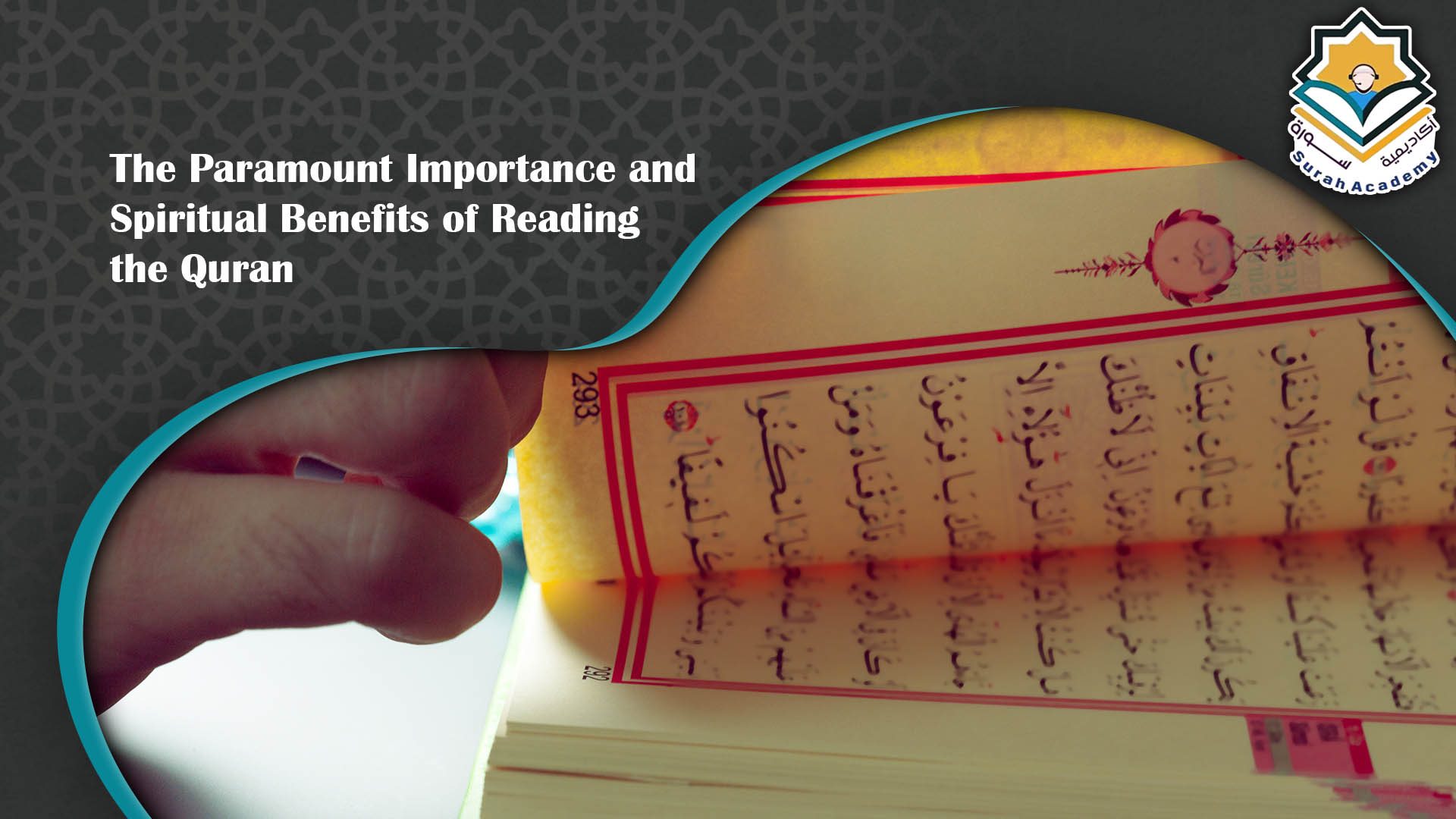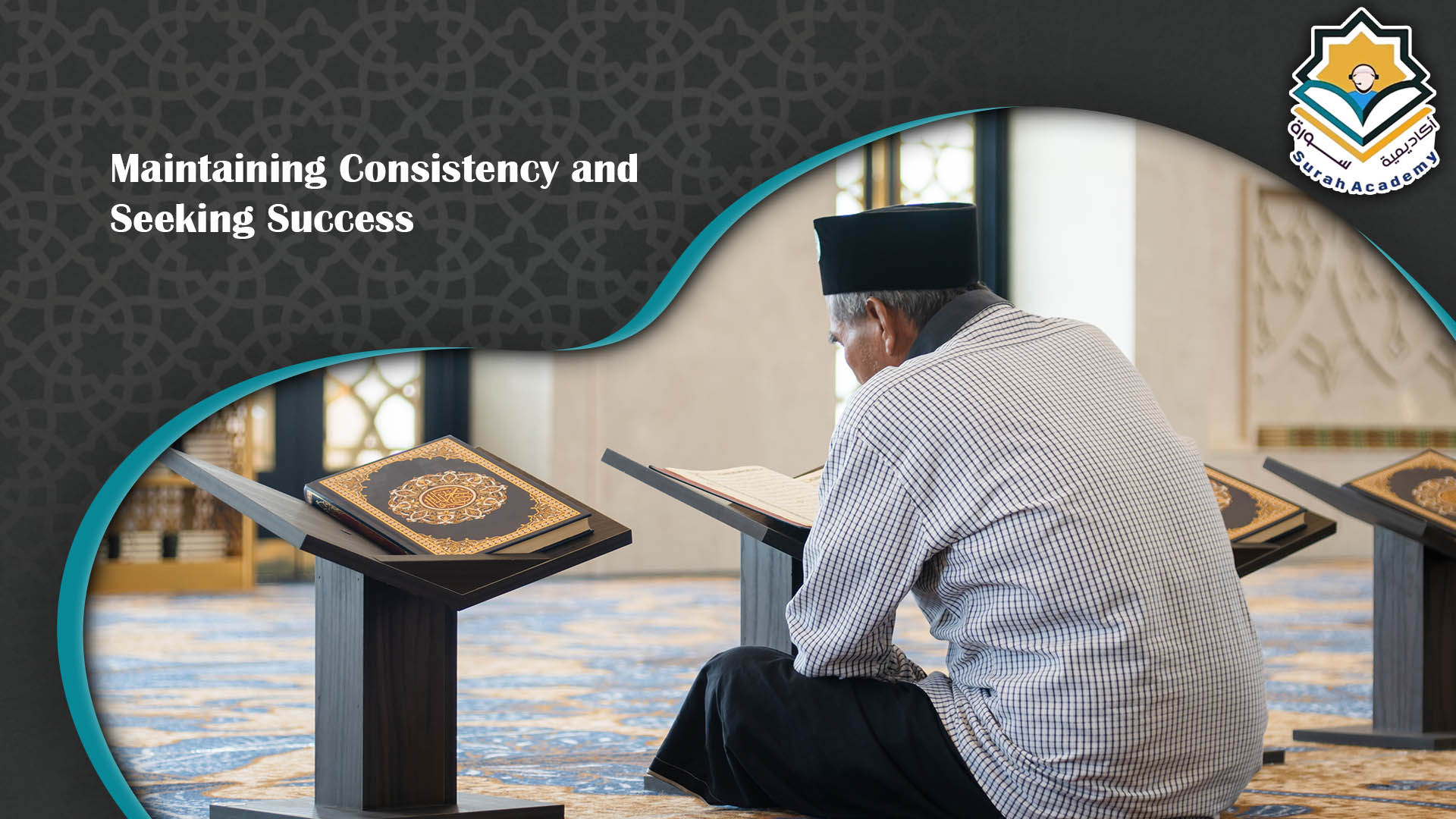Learn to Read Quran with SurahAcademy is the perfect starting point for beginners. SurahAcademy provides structured lessons, expert guidance, and interactive tools to help learners master Quranic letters, pronunciation, and basic tajweed. Start your journey today and build a strong foundation in reading the Quran with confidence and accuracy.
Unlock the Divine Words: A Comprehensive Guide to Learn to Read Quran
The Holy Quran, the final revelation from Allah (God) to humanity, is the core of Islamic faith, serving as a complete code of life, a source of guidance, wisdom, and spiritual healing. For millions of Muslims worldwide, the journey to learn to read Quran is a profoundly personal and spiritual commitment, a pathway to connect directly with the Divine. It’s a rewarding endeavor that elevates one’s status, purifies the heart, and secures immense rewards in this life and the Hereafter. This detailed guide is designed to provide you with a clear, step-by-step roadmap, ensuring you are equipped with the best practices, resources, and motivation to successfully begin and continue your sacred learning journey.
Key Features of Surah Academy’s Online Quran Tutor Services
At SurahAcademy, we provide top-quality, structured Quran learning through our skilled online tutors. Our live, interactive sessions allow students to engage directly with instructors, ensuring personalized guidance at every step. Tailored learning plans accommodate all levels—beginner, intermediate, and advanced—offering a seamless, effective, and enriching Quranic learning experience.

The Paramount Importance and Spiritual Benefits of Reading the Quran

Before diving into the practical steps, it is essential to internalize the profound significance of this act of worship. The motivation to learn to read Quran is deeply rooted in Islamic theology and practice, offering a cascade of spiritual, mental, and physical benefits.
Elevating Spiritual Status and Securing Immense Reward
One of the most compelling reasons to learn to read Quran is the extraordinary reward promised for every single letter recited. The Prophet Muhammad (peace be upon him) said: “Whoever recites a letter from the Book of Allah, he will be credited with a good deed, and a good deed gets a ten-fold reward. I do not say that Alif-Lam-Mim is one letter, but Alif is a letter, Lam is a letter, and Mim is a letter.” This means that a single session of reading can multiply your good deeds manifold.
Furthermore, a person’s status is significantly raised through their relationship with the Quran. The Prophet (PBUH) also stated: “The best among you is he who learns the Quran and teaches it.” This Hadith places the learners and teachers of the Quran in the highest regard within the community. For those who find the recitation difficult, there is a special, double reward—one for the recitation and one for the struggle and effort exerted.
The Quran as an Intercessor and Source of Tranquility
On the Day of Judgment, a time of immense fear and reckoning, the Quran will stand as an intercessor for its companions—those who recited, pondered over, and acted upon its teachings. The Prophet (PBUH) encouraged this when he said: “Read the Qur’an, for verily it will come on the Day of Standing as an intercessor for its companions.”
Beyond the rewards of the next life, the daily recitation of the Quran infuses one’s heart and soul with immediate peace and serenity. The words of Allah are a potent cure for spiritual diseases like anxiety, sadness, and restlessness. When a believer focuses on the divine words, they find solace and inner peace, a true testament to the verse: “Unquestionably, by the remembrance of Allah, hearts are assured” (Surah Ar-Ra’ad, 13:28). This spiritual connection is the ultimate aim of the effort to learn to read Quran.
Universal Guidance and A Light in Life
The Quran is not just a prayer book; it is a universal guide, offering comprehensive instructions for every facet of a righteous life—from personal ethics and moral conduct to societal affairs and legal matters. It is a source of light, illuminating the straight path and protecting the reader from the darkness of misguidance. Daily engagement with the Quran serves as a continuous reminder of one’s purpose, the reality of the Day of Judgment, and the ultimate accountability to the Creator. To truly benefit from this, one must not only learn to read Quran but also strive to understand its profound meanings.
read more: learn quran recitation
Step-by-Step Roadmap to Learn to Read Quran
The journey to learn to read Quran in Arabic may seem daunting for a beginner, but with a structured approach, patience, and consistency, it is entirely achievable. The following steps provide a practical and effective framework for absolute beginners and those looking to refine their recitation.
Step 1: Mastering the Arabic Alphabet and Basics
The first and most important step for anyone who wants to Learn to Read Quran is mastering the Arabic alphabet. Unlike the Latin script, Arabic letters have distinct pronunciations and their shape changes depending on whether they appear at the beginning, middle, or end of a word. To Learn to Read Quran correctly, you must start with the Arabic Alphabet (Al-Huruf al-Hijaiyah), which consists of 29 letters, and pay special attention to the proper articulation point (Makhraj) of each sound. Even a small error in pronunciation can change the meaning of Quranic words.
Equally important when you Learn to Read Quran is understanding the vowels and diacritical marks (Harakat). These include the short vowels (Fathah, Kasrah, Dammah) and the Sukun, which form the foundation of accurate Quranic reading.
A widely recognized method to Learn to Read Quran from the basics is the Noorani Qaida. This essential beginner’s guide systematically teaches the Arabic letters, their shapes in different positions, and the basic rules of Tajweed to ensure proper recitation.
Step 2: Finding a Qualified Quran Teacher (Ustadz/Ustadha)
While self-learning resources exist, seeking guidance from a qualified instructor is highly recommended, and often essential, to learn to read Quran correctly.
Necessity of Iqra’ (Read and Listen): The Quran was revealed orally, and its proper recitation is a practice passed down through a chain of continuous narration (Sanad). Only a teacher can listen to your recitation and provide immediate, accurate feedback on your Makharij and application of rules.
Local or Online Platforms: Find a local mosque or Islamic center that offers classes. In the modern era, numerous reputable online Quran academies provide one-on-one sessions with certified tutors (often with Ijazah certification), making it possible to learn to read Quran from the comfort of your home and on a flexible schedule. Many offer free trial lessons to help you find the right fit.
read also: online quran teaching
Step 3: Integrating Tajweed – The Art of Correct Recitation
Once you have a grasp of the basic reading, the next major milestone is to learn to read Quran with Tajweed. Tajweed literally means “improvement” or “beautification” and refers to the set of rules that govern the correct pronunciation of the letters with all their qualities and the different ways of recitation. Applying Tajweed ensures your recitation is as close as possible to how the Prophet Muhammad (PBUH) recited it.
Makharij and Sifaat: Go deeper into the correct articulation points (Makharij) and the essential characteristics (Sifaat) of each letter (e.g., heavy or light, strong or soft).
Key Tajweed Rules: Focus on fundamental rules, which include:
Noon Sakinah and Tanween Rules: Understanding Idgham (merging), Ikhfa (hiding), Izhar (clear pronunciation), and Iqlab (changing the sound).
Madd (Prolongation): Learning the different types of lengthening for vowel sounds.
Ghunnah (Nasal Sound): Practicing the proper duration of the nasal sound for the letters Noon and Meem when they have a Shaddah (doubling sign) or when certain Noon Sakinah rules apply.
Qalqalah (Echoing): Learning to make the echoing or vibrating sound for the five Qalqalah letters when they have a Sukun.
Practice with a Color-Coded Quran: Many beginners find a color-coded Quran helpful, where different colors indicate the application of various Tajweed rules, serving as a visual aid to learn to read Quran with precision.
Step 4: Consistent Practice and Listening
Consistency is the single most important factor in the success of your effort to learn to read Quran. Daily engagement, even for short, dedicated periods, is more effective than infrequent, long sessions.
Set Realistic Daily Goals: Start small. Aim to read just one verse or a few lines a day, focusing purely on applying the correct Tajweed rules. Gradually increase your goal.
Listen to Master Reciters (Qurra’): Listening to renowned Qurra’ (reciters) such as Sheikh Al-Husary, Sheikh Abdul Basit, or others, is crucial. It helps you internalize the correct rhythm, intonation, and application of Tajweed. Listen and repeat after them.
Record and Review: Use a voice recorder to listen to your own recitation. This helps you catch mistakes you might miss while actively reading, making your practice more effective.
Step 5: Transitioning to Understanding and Reflection (Tadabbur)
The ultimate goal, once you learn to read Quran fluently and correctly, is to move beyond mere recitation to understanding and reflection.
- Read the Translation and Tafsir: While the recitation must be in the original Arabic, reading an accurate translation and a reliable Tafsir (exegesis or interpretation) of the verses is essential. Understanding the meaning deepens your connection, makes your worship more profound, and aids in memorization.
- Start with Short Surahs: Begin with the shorter chapters (Surahs) in the last part of the Quran (Juz’ Amma), as they are generally easier to memorize and are frequently recited in daily prayers.
learn more: online quran tajweed classes
Advanced Techniques and Resources to Deepen Your Study
As your proficiency grows, you can employ more advanced techniques and utilize a wider range of resources to enhance your mastery of the Quran.
Effective Memorization (Hifz) Techniques
For those who wish to memorize the Quran (Hifz), integrating this with your recitation practice is highly effective.
Repetition (Takrar): The most common and effective technique is repeating a small section (an Ayah or a few lines) multiple times until it is firmly fixed in your memory.
Linking Method (Rabt): Link the verses you are memorizing to the preceding and following verses to ensure a smooth transition and continuity.
Recite in Prayer (Salah): Recite the new verses you have memorized in your voluntary or obligatory prayers to strengthen their retention.
Writing (Kitabah): Writing the verses you are memorizing several times engages a different part of your brain and can significantly aid in visual memory.
Utilizing Modern Technology
The digital age has brought unprecedented access to high-quality resources for those who wish to learn to read Quran.
Quran Mobile Applications: Apps like Quran.com or specialized Quran learning apps offer the entire text, multiple translations, audio recitations by various Qurra’, and even word-by-word pronunciation and translation features.
Online Quran Academies: Platforms that offer structured courses in Noorani Qaida, Tajweed, Quran Reading, and Hifz, complete with personalized tutor guidance and flexible scheduling.
Interactive Resources: Many websites and apps offer interactive lessons and quizzes on Makharij and Tajweed rules, making the learning process engaging, especially for children and visual learners.
Maintaining Consistency and Seeking Success

The journey to learn to read Quran is a marathon, not a sprint. It requires discipline, sincerity, and continuous effort.
The Power of Niyyah (Intention): Start and maintain your practice with a sincere intention solely for the sake of Allah. This spiritual intention is the engine of your success.
Time Management: Integrate Quran reading into your daily routine. Choose a specific, quiet time—perhaps after Fajr (dawn prayer) or Maghrib (sunset prayer)—to ensure consistency without disruption. Even 15-30 minutes of focused reading is invaluable.
Review and Seek Feedback: Regularly review previously learned rules and verses. Never be too shy or proud to seek feedback from your teacher or a knowledgeable peer. Continuous refinement is key to mastery.
Make Du’a (Supplication): Never underestimate the power of prayer. Humbly ask Allah to make the path of learning easy for you, to grant you understanding, and to make the Quran a light for your heart.
Frequently Asked Questions about Learn to Read Quran
Here are answers to some of the most common questions to help you get started on your journey to learn to read Quran effectively.
1. How can I start learning to read Quran as a beginner?
Start by learning the Arabic alphabet and basic pronunciation. Using beginner-friendly books like “Noorani Qaida” or online lessons can help you gradually progress to reading full words and verses.
2. Do I need to know Arabic to read the Quran?
No, you don’t need to be fluent in Arabic initially. Understanding the letters, sounds, and basic rules of tajweed is enough to begin reading correctly. Arabic fluency can come later as you continue learning.
3. How can I improve my pronunciation and tajweed?
Listen to expert reciters, follow along with recordings, and practice consistently. Joining online Quran classes or working with a teacher can provide guidance and correction for proper pronunciation.
In Conclusion, The decision to learn to read Quran is one of the most rewarding and impactful choices a Muslim can make. It is an investment in your spiritual and eternal well-being, bridging the distance between the Creator and the creation.
By diligently following the steps outlined in this comprehensive guide—from mastering the foundational Arabic alphabet and Noorani Qaida, to perfecting your recitation with Tajweed, and ultimately reflecting on the profound meanings through Tafsir—you will unlock the divine wisdom and beauty contained within the Holy Book.
Embrace this blessed journey with patience, consistency, and a sincere heart, and you will find that the Quran will become a source of peace, guidance, and immense reward in every step of your life. Start today, and may Allah grant you success and acceptance in this noble endeavor.
